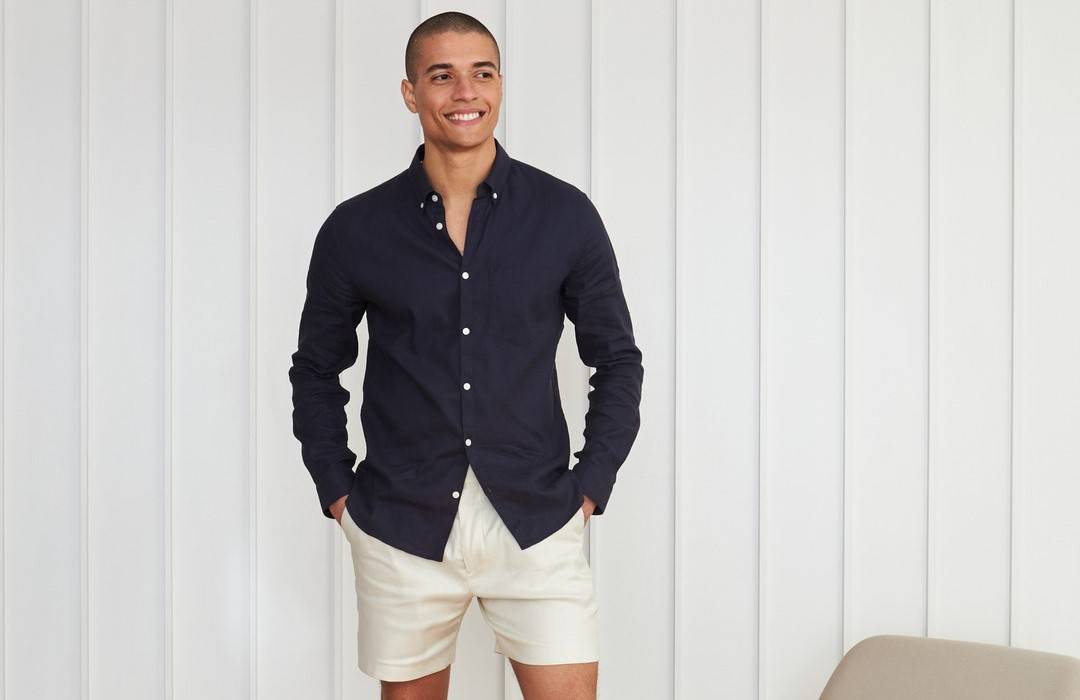
Sanlorenzo says its SX series of yachts blurs the boundaries between flybridge and explorer-type yachts, with the X representing the “cross” in crossover. The new SX100, the range’s latest model, has exterior lines by Zuccon International Project like those on the SX112, SX88 and SX76 that came before her, with reverse-angle windscreens giving a robust, explorer-yacht look.
Hull one showcases interiors by Piero Lissoni, who is also Sanlorenzo’s Artistic Director, although future SX100 owners can create or commission their own bespoke layouts and designs.

Furthermore, the crossover doesn’t end with yacht types. A strong accent on ease of outdoor living and quick access to the water means the boundaries that divide indoors from out are blended so much that the only logical way to begin a tour of the yacht is from an outdoor space.
Waterside Living
The main saloon is usually a yacht’s largest area and the centrepiece that sets the tone for an onboard experience. Not so aboard the SX100, where the stern deck is a huge expanse of free and open space that’s much more than a swim platform.

When the space is not being used to store the 5.65m tender and water toys, it becomes an area without barriers between guests and the sea. The pieds dans l’eau effect is multiplied exponentially when, at the touch of a button, two spacious side terraces open out over the water.
An up/down platform fully aft is for getting in and out of the water and deploying toys, while a crane for launching the tender is integrated into one of the arches over the side terraces.

Teak benches fold down over the mooring equipment, both concealing it and offering a very handy spot for putting on swimming fins. It’s a real shot of luxury lifestyle for those who enjoy the outdoors, whether swimming, sailing or soaking up the sun.
Lowering the terraces also opens the side views in the lower-deck lounge, which is accessed through a sliding glass door in the centre of a full-width screen of windows that are slanted at a similar angle to the SX’s iconic windscreens.

Set slightly lower than the aft deck, the lounge has a red-lacquer bar to port along with chairs, coffee tables, a sofa to starboard and mirror-lined walls, so you see the water no matter which way you’re facing. And when the terraces are down, the aft deck and beach lounge become one integrated zone that can be enjoyed from dawn to dusk.
Open Interiors
The slender, “floating” external staircase up to the main deck’s aft cockpit is enclosed in glass, while the same beautiful, curved glass used to encase the lower-deck lounge is used in the cockpit’s glass railings.

Rather than just a gateway to the saloon, the cockpit is more of a continuation of the stern deck, with the two spaces connecting both philosophically and ergonomically. The cockpit is large enough for sun loungers and side tables due to the absence of an external staircase leading to the flybridge.
Lissoni explains the lack of a traditional feature: “It used to be that a yacht and everything aboard it had to be made by a yacht designer, but I’m not a nautical designer and I don’t want to become one. I’m an architect, and when I design a yacht, I approach it just as I would any other project, aiming to create something functional, comfortable and beautiful. Outsiders like me have changed the rules in yachting.”

Only a tour of the SX100’s interiors in the ‘Lissoni version’ reveals just how true that is. In his edition of the interior, the saloon is a display space for iconic design pieces arranged in a large, open space where glass, both in the form of windows and mirrored surfaces, seems to be the main building material.
Built-in pieces are limited in number and blend into the yacht’s structure while natural woods offer a subtle backdrop to an area where nothing glistens or sparkles but everything shines. Signature Lissoni elements include a steely, sculptural, spiral staircase to starboard that leads to the lower deck, while forward is a slender wooden staircase that leads to the flybridge and can be concealed behind a decorative screen.

Lissoni’s approach to yacht interiors revolves around spaces that are as open and as contemporary as possible.
“I’ve never understood the ‘Lord Nelson’ approach to nautical design. Yachts are ultra-technological pieces of machinery, so why all the tradition? We’re modern people living today, so why not design an interior that reflects that. In my opinion, everything used aboard a yacht should be commercial because industrial designers are better attuned than nautical designers to how we live today.”
Forward Master
The SX100 has Lissoni’s preferred layout for yachts in this series, with the owner’s cabin fore on the main deck in a spot normally used for the helm in traditional 100ft motor yachts. Featuring an aft facing bed, the cabin has excellent visibility and textured glass is used for the closet and bathroom walls to keep things light and airy.

Other options for this space on the SX100 include a formal dining room. In either layout, a port side door offers quick access to the foredeck, which has a large sofa, table and lots of sun pads that can be spread out over the mooring gear when the yacht is stationary.
The lower deck is home to three en-suite guest cabins: a double, a twin and a VIP set just opposite the galley. All cabins have interior walls set slightly off the yacht’s centreline and exterior walls that follow the curve of its hull shape. The bottom deck also has crew cabins for five and a crew mess near the galley.

Like previous SX yachts, the SX100 only has one helm and it’s on a table fore on the flybridge, featuring four Raymarine screens and Volvo Penta IPS joystick commands. The covered area, which includes a dining area and bar, can be left open in nice weather or sealed off by electrically operated windows and sliding doors.
The aft section of the fly is another outdoor area for sun and fun, with a glass balustrade so guests can enjoy the views from on high.
Power & Performance
While Lissoni always says he approaches the interiors of the SX series as if he were designing a residential building, the SX100 was born to run and has a fast displacement hull. Access to the engine room under the stern deck is from a deck hatch or a small door on the starboard side of the beach club.

Propulsion comes from four Volvo Penta D13-IPS pods with twin counter-rotating propellers designed to improve performance, manoeuvrability and range while reducing fuel consumption, noise and vibrations. The propulsion system delivers a top speed of 23 knots and a range of 1,600nm at 10 knots, while the engine, transmission and drive have integrated helm-to-prop Electronic Vessel Control (EVC).
Lissoni’s approach has given the SX100 an unusual setup and a chic, home-like look that crosses the boundaries between residential architecture and nautical design. The continuous connection, both visual and physical, between the yacht and the environment around it crosses the divide between indoors and out.

Add explorer looks combined with flybridge performance and you have the SX100, a crossover yacht that crosses over a lot more than just genres of yachts.
www.sanlorenzoyacht.com
www.simpsonmarine.com
This article was first published on yachtstyle.co.
For more on the latest in luxury yachting stories, click here.









